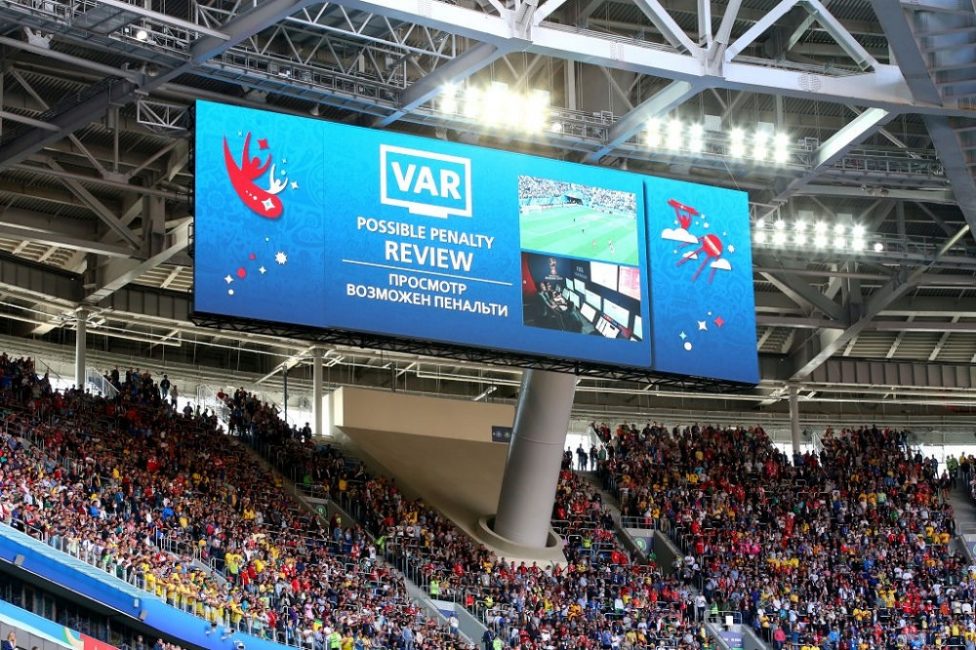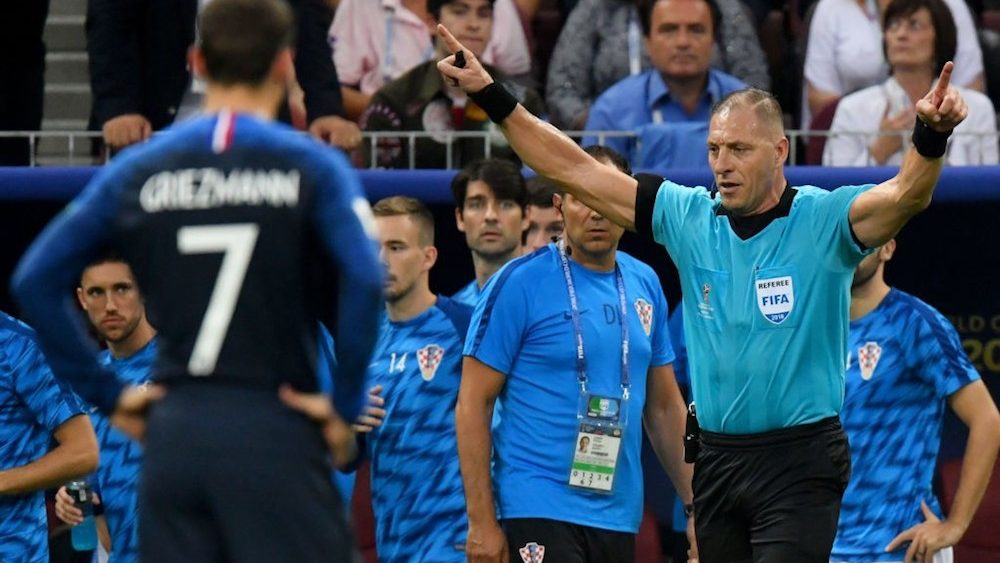Round-Up: Quo VARdis
Unfortunately, the first year of use in the Bundesliga led to more questions than answers at times. Especially early in the season, there were too many incidents when the referees used VAR in seemingly unnecessary circumstances.
Perfecting VAR in Germany?
What seemed like an ideal situation, combining the German leagues’ willingness to innovate with their diligent nature, turned into overuse and contentious results. The notoriously perfectionist Germans instead of getting the use of VAR perfect, attempted to use it to make every call perfect. This led to far too many stoppages of play and a lack of clarity.
In turn, the many dissenting voices of VAR immediately felt vindicated in their distrust of the new system. Those opponents of VAR were quick to point out how the system was breaking up the natural flow of the game. That referee errors generally go both ways and inevitably even out in a full season. They also enjoy reminding everyone that the referees still don’t get every call correct.

(Image by Alex Grimm/Bongarts/Getty Images)
While much of that is irrefutable, it also feels like an overly simplistic and short sighted look at the topic. In many ways it is actually good to have these opposing views, as long as those dissenting voices are not wearing blinders. Innovation needs critique in order to be refined and hopefully perfected.
But we first must understand and accept that the use of VAR will not get every call correct. Football is not that black and white. It’s impossible to get every call “correct”, because there are plays in every match that if you showed 10 referees, you will end up with them split 5-5 based on their interpretations of the rules. Additionally, those 5 referees that agree, may agree for differing reasons. That is the nature of refereeing and humans in general.
The purpose of VAR, as I see it, is that referees have a significantly better chance to get important decisions correct. To have access to all sides and information available. Whether they interpret that information correctly is another matter, but having the opportunity to correctly decide match changing decisions is important and good for the game.
Every person watching a match on TV instantly has access to replays with a variety of angles. When it is clear that the referee got the call wrong, why would we not want him to have that same information?
Learning Curve
This first year has been a learning curve for everyone involved. The referees have had to find a balance between non-reliance and over-reliance. The players, managers and the club officials have had to get used to what type of situations can actually be reviewed and accepting changes in calls. Everyone has had to get used to stoppages in play while calls are reviewed.
New technologies and rules often result in growing pains. Replay had similar issues when first being introduced to U.S. sports leagues. It took a few seasons before the “kinks” were ironed out.
Now that it is functioning properly, you rarely hear anyone complaining about how it’s “ruining the game.” You are much more likely to hear people asking how it can be used in more situations.
We have already seen a significant improvement in the use of VAR through the course of the season. Experience and use are the two best teachers in terms of development. The longer that VAR is used the better the system will work.
A blueprint for the future
To that point, the use of VAR at the World Cup has been a good example of how the system will continue to evolve. There was significantly less uncertainty around its use and was, in general, much more efficient.
You are currently viewing a placeholder content from X. To access the actual content, click the button below. Please note that doing so will share data with third-party providers.
Referees have begun to understand how best to utilize VAR and to trust the opinion of the referees in the replay centers as to whether something needs to be looked at. This has resulted in less stoppages in play and quicker decisions when those stoppages occur.
The instructions given by FIFA officials prior to the World Cup have also been extremely successful. Letting the match continue on close plays and using the review center to let the referee know of any missed calls, has resulted in significantly less disturbances and controversies.
Of course, there are still a few issues. One of the more significant being that the spectators inside the stadium do not have the ability to see what is being reviewed. There is a giant question that runs through the crowd every time the referee changes a call or goes to the monitor.
The easy solution is to run those replays on the screens inside the stadium, so that they can see exactly what the referee is seeing. This has worked well in American professional sports and it takes a lot of the mystery out of the review system. It makes no sense that everyone watching a game except the people in attendance know exactly what is going on.

(Image by Alex Livesey/Getty Images)
Another potential step is to mic the referees so that they can explain what exactly is being reviewed and the reasoning behind the results of those reviews over the stadium speakers. Again, this would take much of the confusion around the decisions out of play.
VAR is constantly improving and in a few years, we will likely all be used to it. People will forget about the early days where things didn’t run smoothly. Fans will begin to understand that while some calls are still controversial, we will get more decisions correct. Ultimately, that’s what matters. Doubtlessly there are other areas that VAR can be improved upon. What do you think of VAR? Where else do you see a needed improvement?
Links of the Week
World Cup final sees Inter Milan and Bayern Munich dominate since 1982 | ESPN
Renato Sanches will bounce back at Bayern Munich – Arjen Robben | Mark Lovell | ESPN
5 Key points to talent identification from the professionals | Professional Football Scouts Association
Current Miasanrot-Articles
Season start for the youth | Martin | Marc
World Cup-Blog: No Bayern goals in Russia | Justin | Bettina
Current statistics and visualizations
You are currently viewing a placeholder content from X. To access the actual content, click the button below. Please note that doing so will share data with third-party providers.




 July 20, 2018
July 20, 2018 


